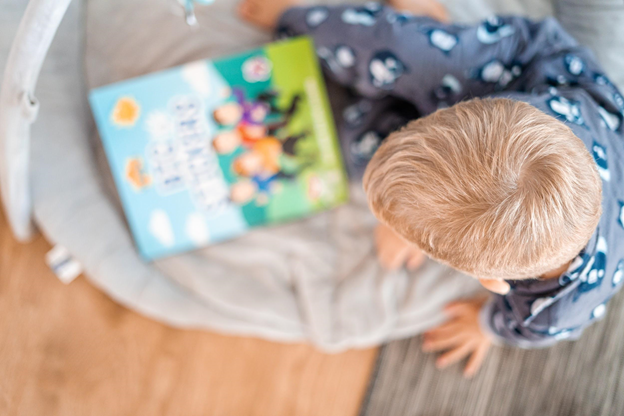 Loading... Please wait...
Loading... Please wait...Categories
5 Tips To Help Your Kids Sleep Better
Posted by Krista Harper on 19th Aug 2019

5 Tips to Help Your Kids Sleep Better
When
discussion of insomnia and sleep deprivation surface, rarely do people consider
that their children experience these same concerns or symptoms. However, much
like their parents, children have stress, fear, concerns, as well as behaviors
that limit their ability to sleep the recommended ten to fourteen hours of
sleep each night.
So, how can you help your kids sleep better? Here are five tips.
Create routine
Routine is one of the most important things you can do to improve your child’s overall health. A bedtime routine should start with the highest activity early and then slowly reduce as your child goes to bed. A good example is eating a late snack, brush teeth, read a book, then go to bed. Routine helps your child predict the next steps and become comfortable and confident with going to sleep or any other activity.
Eliminate devices
As a parent you’ve probably heard this often. However, once introduced it is difficult to reduce smart phones and tablets from your child’s nighttime “needs.” Aside from the stimulation, the biggest sleep-prohibiting factor produced by devices is the blue light which can reduce the production of melatonin. Melatonin helps to make your child sleepy and is also an important component of nightly sleep cycles.
Create a comfortable sleep environment
A comfortable sleep environment ensures your child has a mattress they can fall asleep on, a soft pillow, and plenty of blankets. But there is more you can do to improve that environment. For starters, many people use a fan or white noise machine to blend sounds and frequencies that can cause sleep disruption. Black out curtains can reduce outdoor light coming into the room, and even essential oils can provide calm and trigger chemical processes to induce sleep.
Turn down the thermostat
When your child first begins to fall asleep melatonin will help to reduce your child’s core body temperature. This allows the body to stay soundly asleep as your child goes through their sleep cycles. For your child to sleep, regulating temperature is important. If the temperature is too cold your child will stay alert, but if they are too hot then they may feel sweaty and restless. Regulating your child’s environmental temperature, leaning to the slightly cool will aid the body in falling to sleep.
Eat a calming bedtime snack
If you can avoid a late-night snack before bed, then that’s great. However, if you are a parent then you understand that your child will complain about being hungry just as it’s time for bed. Much of this is a way to delay the nightly routine. However, it might also be because your child is actually hungry. Especially around five-years-old this concern will keep your stubborn kindergartener’s mind occupied for hours. So, being prepared for a late snack may not only ease the tantrums, but also ease your child to sleep. Consider snacks such as warm milk and graham crackers or peanut butter (if not allergic) and apple slices.
Sleep is important for your kids’ bodies to function properly. This aids in reducing stress, anxiety, and social functioning. Some ways to help ease your child into sleep are to build routine, eliminate blue screens, create a comfortable sleep environment and being prepared with healthy late-night snacks.
Recent Posts
- » The Ultimate Guide to Finding the Perfect Car for Super Moms: Combining Style, Practicality, and Safety
- » Safeguarding Your Home Daycare: What Experts Have to Say
- » Practical Tips To Consider When Preparing For Another Child
- » HOW PARENTS OF SPECIAL NEEDS KIDS CAN ASSESS THEIR FATIGUE AND EMBRACE SELF- CARE
- » Autism and Sleep: Empowering Children With ASD for Better Sleep
